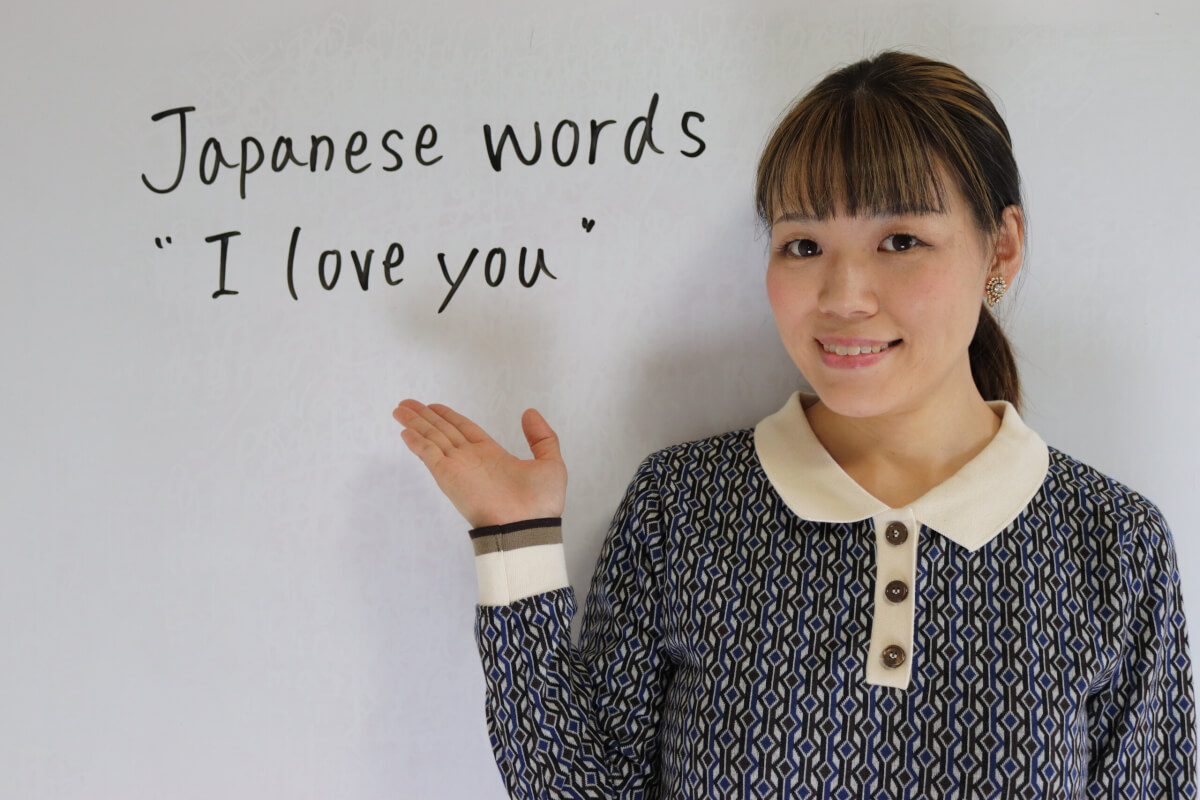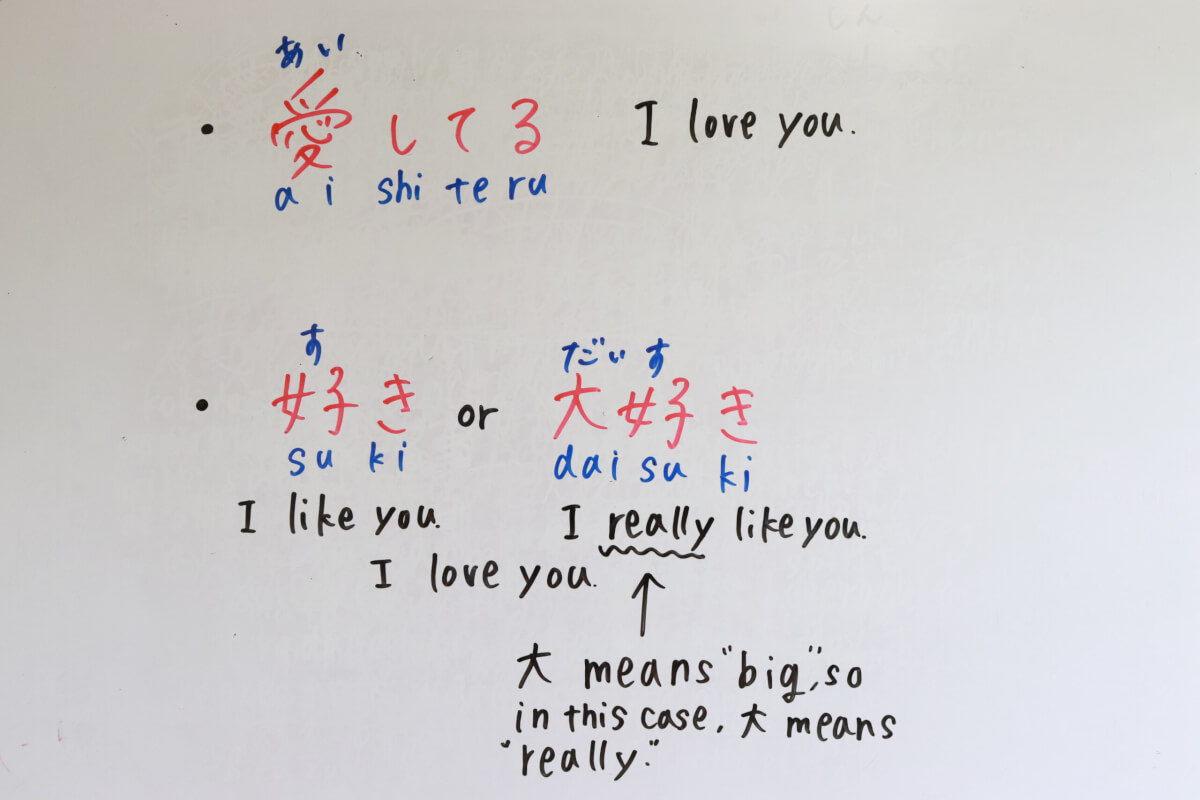- Release Date:
Japanese words I love you

When it comes to expressing love, the Japanese language offers a range of expressions, each with its own nuance and cultural depth. Unlike in many Western languages where "I love you" is freely and frequently used, in Japan, love is often conveyed in subtler, sometimes less direct ways.
Let's explore how to say "I love you" in Japanese and the context behind these beautiful words.

愛(あい)してる /ai shiteru/
Meaning: "I love you" (romantic love)
This is the most direct way to say "I love you" in Japanese. However, it's not used as often as you might think. While it’s common to hear in romantic movies or books, saying "愛(あい)してる /aishiteru/" in real life can feel quite intense and dramatic.
It’s reserved for serious, deep feelings, often between couples who have been together for a long time.
ex)
私(わたし)はあなたを愛(あい)しています。
/watashi wa anata o aishite imasu/
I love you.
好(す)き /suki/ & 大好(だいす)き /daisuki
Meaning: "I really like you" / "I love you" (casual)
"好(す)き /suki/ and 大好(だいす)き /daisuki/" is a more common and less formal way to express affection. "大(だい /dai/)" means big, and "好(す)き /suki/" means "I like", so "大好(だいす)き /daisuki/" means I 'really' like you.
It can be used not only for romantic love but also for things or people you have a deep fondness for, such as friends, family, or even hobbies. In many cases, couples in Japan say "好(す)き /suki/" and "大好(だいす)き /daisuki/" to express love in a casual, heartfelt way.
ex)
彼(かれ)は私(わたし)に「君(きみ)が大好(だいす)きだ」と言(い)った。
/kare wa watashi ni "kimi ga daisuki da" to itta/
He told me, "I really like you."
Do Japanese people say "I love you"?
In Japan, “I love you” is not said much. In fact, I have never said "愛(あい)してる /aishiteru/" to my husband or children. "愛(あい)してる /aishiteru/" has a very romantic meaning.
Instead, I often say "大好(だいす)き /daisuki/" to my family. The usage of "I love you" in English is totally different from that in Japanese.
And also, verbal expressions of love in Japan are often less frequent compared to Western cultures. Actions, gestures, and consideration for each other often speak louder than words.
The phrase "愛(あい)してる /aishiteru/" may feel a little strong and too romantic for daily use in Japan, but through actions and everyday expressions like "好(す)き /suki/" or "大好(だいす)き /daisuki/", love is conveyed just as powerfully.
